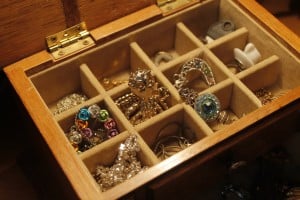by K. Pythia Theocritos
There comes a time in many African American lives where, by relaying something from their social narrative will have their statement tagged as “making it racial.” When I was younger, I was very quick to correct this assertion by reframing, or even apologizing for, my statement.
Socially, minorities are taught that “making it racial” means blowing things out of proportion, or taking things out of context. At the very worst it is seen as obstructing an issue by adding an irrelevant element. Once this implication is taken into account, one can reasonably see how the very notion is offensive. In Western society, especially where black Americans are concerned, race is part of who we are. Our race encompasses our culture, our social narratives, where many of us have come from, and the very recent and tangible history that colors our perspectives.
It is no surprise that the Caucasian perspective is considered the normal lens through which social and political issues are to be viewed. This explains why bringing up racism, for a minority, is seen as race-baiting or making it racial; while the same topic explored by a Caucasian observer is taken seriously and viewed as ground-breaking. It’s why the recognized leader of the anti-racist movement, Tim Wise, is a white male capable of being published much easier than the people of color who have written on the same subject.
White is, subconsciously, given the distinction of being unbiased and objective. Hence, “making it racial” actually means “taking on a non-white perspective to an issue.” Making it racial is standing in the Marine Corps museum of Occoquan and noting the bravery of black men fighting for a country where, once they got home, they could face worse violence from fellow Americans and were not eligible for the plethora of GI programs their white comrades received upon return. Making it racial is finding something distasteful with the way the 1950’s are painted as a “Golden Time” in American history, when Jim Crow ran rampant and blacks were seen as less than human.
Making it racial shows its face when a womanist discusses the different needs of women of color and is pushed aside, or silenced, for the sake of the white woman’s fight. In the end the accusation of “making it racial” is racist in and of itself. This statement forces the very real perspective and experience of a person of color into a box that is only allowed to be opened when deemed appropriate by ingrained Eurocentrism and its unwitting proponents.
The stories, histories, and voices of blacks within the pagan community, and outside of it, do not exist for the benefit of assuaging white guilt, pacifying well meaning liberals, or providing background noise for any particular cause. Our insights are just as valid, even if they are tinged with the, sometimes, cruel facts surrounding our living chapters in this country we get to share with so many others. In a nation that prides itself on being a melting pot and an example of diversity within solidarity, the underlying current of forced mental, and emotional, assimilation is nothing short of psychological abuse.
For these reasons, I ask every person to consider what they really mean when they say “making it racial” and to ponder where this stigma comes from. Speaking of truth, from experience, from history, from the reality so many of us see every day of our lives is not shameful or wrong, but allows us to share a part of ourselves with those who wish to know the world from the varied perspectives we, too, hold.
 K. Pythia Theocritos has been a practicing pagan, both in and out of the community, for 11 years. She is currently a devotee of The Olympians, editor of He Epistole; A Hellenic Polytheist Newsletter, and proud purveyor of self-deprecating humor. Having studied eclectic Wiccan-influenced magical practices, she seeks to construct, for herself, a ceremonial magic system based on Greco-Roman symbolism instead of the, typical, Judeo-Christian archetypes. This project, combined with her studies in alchemy, have forced her to convert her blood into pure caffeine for efficiency. She is engaged in a wonderfully playful inter-faith marriage; is the personal butler of 4 cats, and is fond of a good drink, a few laughs, and profanity when it fits the surrounding company.
K. Pythia Theocritos has been a practicing pagan, both in and out of the community, for 11 years. She is currently a devotee of The Olympians, editor of He Epistole; A Hellenic Polytheist Newsletter, and proud purveyor of self-deprecating humor. Having studied eclectic Wiccan-influenced magical practices, she seeks to construct, for herself, a ceremonial magic system based on Greco-Roman symbolism instead of the, typical, Judeo-Christian archetypes. This project, combined with her studies in alchemy, have forced her to convert her blood into pure caffeine for efficiency. She is engaged in a wonderfully playful inter-faith marriage; is the personal butler of 4 cats, and is fond of a good drink, a few laughs, and profanity when it fits the surrounding company.
















